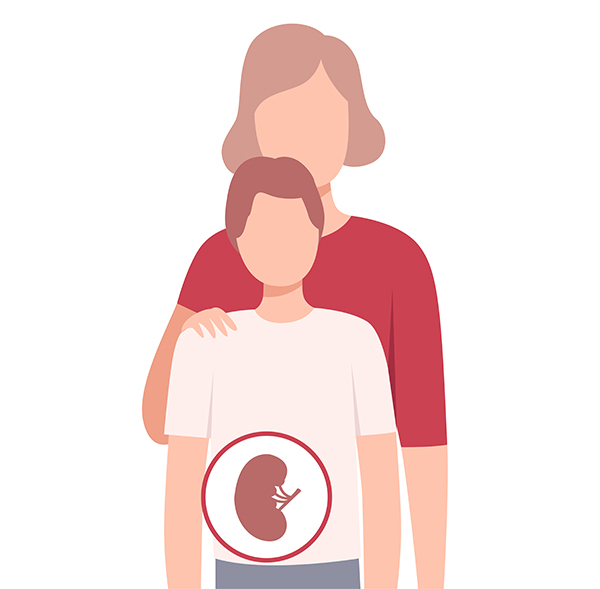 A new study shows that some patients who have experienced prior kidney transplant failure and have high mismatches with their donors may benefit from staying on immunosuppressant medication. This is because doing so could improve their chances of being matched with a subsequent kidney and their bodies accepting the new transplant.
A new study shows that some patients who have experienced prior kidney transplant failure and have high mismatches with their donors may benefit from staying on immunosuppressant medication. This is because doing so could improve their chances of being matched with a subsequent kidney and their bodies accepting the new transplant.
When someone receives a transplant, their immune system will often develop antibodies that recognize the new organ as foreign and attack it, which is why transplant recipients must take medication that lowers their immune system activity (immunosuppressants). When exposed to foreign immune molecules called human leukocyte antigens (HLA), some people produce few antibodies, while others produce a lot.
“Having a broad range of antibodies against HLA molecules is not a good thing for someone waiting for a transplant, because the more antibodies they make, the less likely they will be able to find a match,” explains Dr. James Lan, a transplant nephrologist at Vancouver General Hospital, and an assistant professor in both the UBC Division of Nephrology and the Department of Pathology and Laboratory Medicine.
Currently, when patients have a failed transplant, many stop taking their immunosuppressant medication, since it involves side effects and may be deemed no longer necessary to take. Unfortunately, many patients with a failed transplant tend to develop high levels of antibodies, decreasing their chances of finding a match for the next organ.
Lan and his colleagues theorized that for patients with high HLA mismatches with their donors, continuing immunosuppressants even after transplant failure may be beneficial to prevent the development of antibodies. This may improve their chances of finding a match for the next transplant.
The results, published in Frontiers in Genetics, show that patients with high mismatches indeed did benefit from continuing immunosuppressants – which increased their odds of being matched with a future donated kidney. In contrast, 88 percent of the patients who had high mismatches and stopped taking their medication went on to have difficulty finding a matched kidney.
Lan says these results could help offer patients more tailored treatment strategies. For example, if a patient is well matched with their donor, it may be safe to take them off immunosuppressants after the transplanted kidney has failed. “They don’t need to be exposed to unnecessary anti-rejection medication,” he explains. “But if they are high-risk, they should continue to take their medication all the way through until their next transplant.”
Although this was a small retrospective study, the results may hold very important implications for transplant recipients waiting for a second organ and may increase the number of successful transplants. Lan and his UBC colleague, Dr. John Gill, have received a grant from the Canadian Institutes of Health Research to explore these findings in greater detail through a pan-Canadian randomized controlled study.
